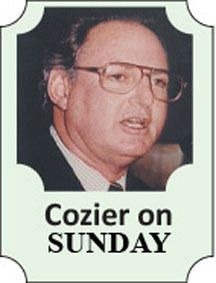By Tony Cozier
Throughout two decades of disputes and decline, the West Indies captaincy has been an unbearable burden, even for its most prominent holders.
Under pressure as the team began its downward slide from its indisputable No.1 position of the 1980s, Richie Richardson stepped aside for a year midway during his tenure.
Brian Lara quit in 2000 “after two years of moderate success and devastating failures” to seek “professional” help; he subsequently returned for two stints that were no less turbulent.
Shivnarine Chanderpaul resigned in 2006 after 14 Tests, declaring that he did not have the full support of his players; nine years on he remains in the rank and filed.
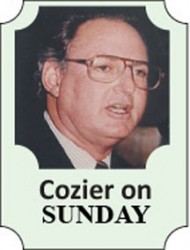 Such instances put into context the unreasonable task of captaincy now placed on Jason Holder at a period as unsettling as any the West Indies have ever endured.
Such instances put into context the unreasonable task of captaincy now placed on Jason Holder at a period as unsettling as any the West Indies have ever endured.
At 23, Holder was handed as his first assignments the current ODIs in South Africa and the subsequent World Cup in Australia and New Zealand. He is younger than any of those under him (he was three years old when Chanderpaul first appeared for the West Indies); no previous West Indies skipper in any format was as youthful.
Taking on South Africa (ranked third in ODIs to West Indies eight) and then the game’s 14 leading teams in the World Cup was demanding enough. The timing of his appointment, in the volatile aftermath of the team’s devastating pullout of the tour of India in October and the contentious exclusion of Dwayne Bravo, the captain then whom he now succeeded, made it all the more so.
In explaining the decision to appoint Holder, head selector Clive Lloyd described him as “one of the good, young players we believe will form part of the long-term future of West Indies cricket”.
“He has a very good cricketing brain and has the makings of a very good leader,” he added.
There seemed no thought to the need for Holder to develop his game at the highest level or to the strained circumstances of the situation. The damaging effects have been quickly evident in South Africa.
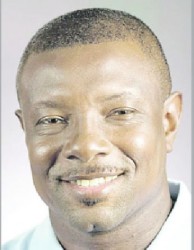
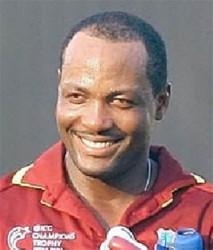
No sooner had Chris Gayle loaded his verbal AK-47 following his match-winning, series-clinching 90 from 41 balls in the second Twenty20 in Johannesburg and aimed a volley at the selectors, charging victimization of Bravo and Pollard for their part in exit from the India tour, than Viv Richards foresaw their inevitable problems.
To the most feared batsman of a golden age of West Indies cricket, Gayle’s outburst was a clear sign that “players are disgruntled”. He wondered how unified they were, asserting that “the dressing room will not be a comfortable place to be in”.
Lara, as brilliant a batsman as Richards in a later, less memorable era, made similar observations some months earlier, even before Holder was installed as captain.
The potential for disharmony in the team was so obvious, such comments could have come from anyone, anywhere on the planet. Somehow, they seemed to escape Lloyd and his fellow selectors.
The Twenty20 win in Johannesburg has been followed by defeats in the final match by 69 runs, a sizeable margin in the shortest form of the game, and in the first three ODIs, each progressively more severe than the one before.
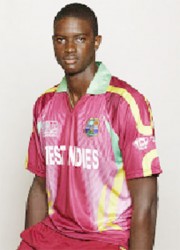
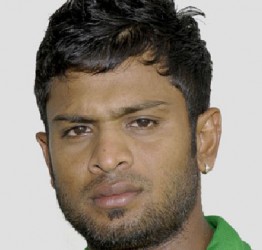
In the second ODI, AB deVilliers’ astonishing hitting in his 31-ball 100, the fastest in the 42 years of ODI cricket, and his eventual, unbeaten 149 from 44 balls with 16 sixes, was a brutal initiation to the leadership for Holder.
In his second game at the helm, the 6-feet, 7-inch seam bowler was taken for seven sixes and for 91 runs from his nine overs. It was a testament to his character that he came back with a creditable performance in the next match.
It was not the same for the rest of the team. The devastating effect of that trouncing on the overall mental state was exposed in Wednesday’s third match in East London.
The don’t-carish manner of several of the dismissals was an unmistakable sign of what Richards, Lara and every West Indian, no matter how eternally optimistic, saw as inevitable.
The scything shots from Narsingh Deonarine, Andre Russell and Sulieman Benn were the kind usually seen during cane-cutting season. Gayle’s prolonged drought of runs in ODIs continued with the familiar edge to the keeper.
Even more culpable was Marlon Samuels. Paying no need to his new role as vice-captain, a position seemingly gained through his assertion that he was against withdrawal from the India tour, he disdainfully hoisted Imran Tahir into long-off’s lap. It was a replica of his second innings brain fade against off-spinner Simon Harmer in the third Test that transformed a promising position into a customary collapse and eventual defeat.
At the presentation afterwards, Holder looked unsurprisingly shattered. By the time he fronted up to the media quarter-hour later, he had gathered himself and gave his players, all his senior, a strong dressing down.
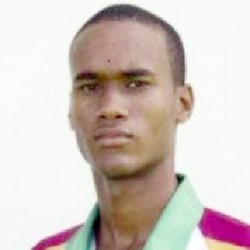
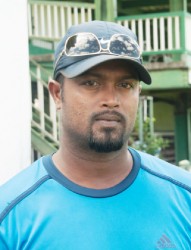
“I am worried about the way we are going about our cricket,” he said. “I think we can be a lot more respectable and put up our hands sometimes when we make errors. It’s just about correcting those errors and being man enough to say I’ve committed this error and just moving on from it.” He spoke of the need for pride in the remaining matches and the World Cup to follow.
Even if indirectly, accusations of not being “man enough” and a lack of pride are affronts to the ego of most West Indian cricketers.
The next few months will determine whether Holder’s challenge changes in any way the indifference so abundantly clear at present.
If it doesn’t he and his team are in for more globally exposed humiliation. .
THE shocking mismanagement of the West Indies Cricket Board (WICB) and its lack of accountability never fail to amaze.
One glaring example is the issue of visas for its players heading for overseas tours.
A year ago, Kraigg Brathwaite had to wait two weeks before the WICB’s chief executive officer and his staff could obtain a visa for him to travel to New Zealand as replacement for an injured Chris Gayle. By the time he eventually got there, two of the three Tests were decided; he played in the third and last.
There has never been an explanation for such inconceivable ineptitude, far less any action against CEO Michael Muirhead or any of his underlings.
To expect that the problem would not recur was to vastly overestimate the competence of those responsible. It has happened again on the current tour of South Africa, not once, but twice.
All went well enough for Asad Fudadin, a replacement for Darren Bravo, to arrive in South Africa in time for the first Test; a finger fractured in fielding practice before the match immediately ruled him out for the series.
The next move was to get him home, seemingly a straightforward task except in this case. The hindrance was that he did not have a visa to intransit London on the way back to Guyana; that took over two weeks to sort out before he could finally end what was effectively his holiday in South Africa.
His injury also put him out of the limited-overs series. The WICB announced on December 20 that his replacement would be fellow Guyanese Narsingh Deonarine.
Up popped the same visa problem again, taking almost a month to sort out before Deonarine stepped foot in Johannesburg ready for the third ODI. Whether he will be able to get back home is another matter. It is in the hands of the WICB; his family must be worried.
Can the WICB lack such pull as an international sporting body not to able to sort such things out? If so, could it not use diplomatic channels, through CARICOM, to act on its behalf? Why do such cock-ups happen only to West Indies cricket?
Yes, you just couldn’t make it up.
